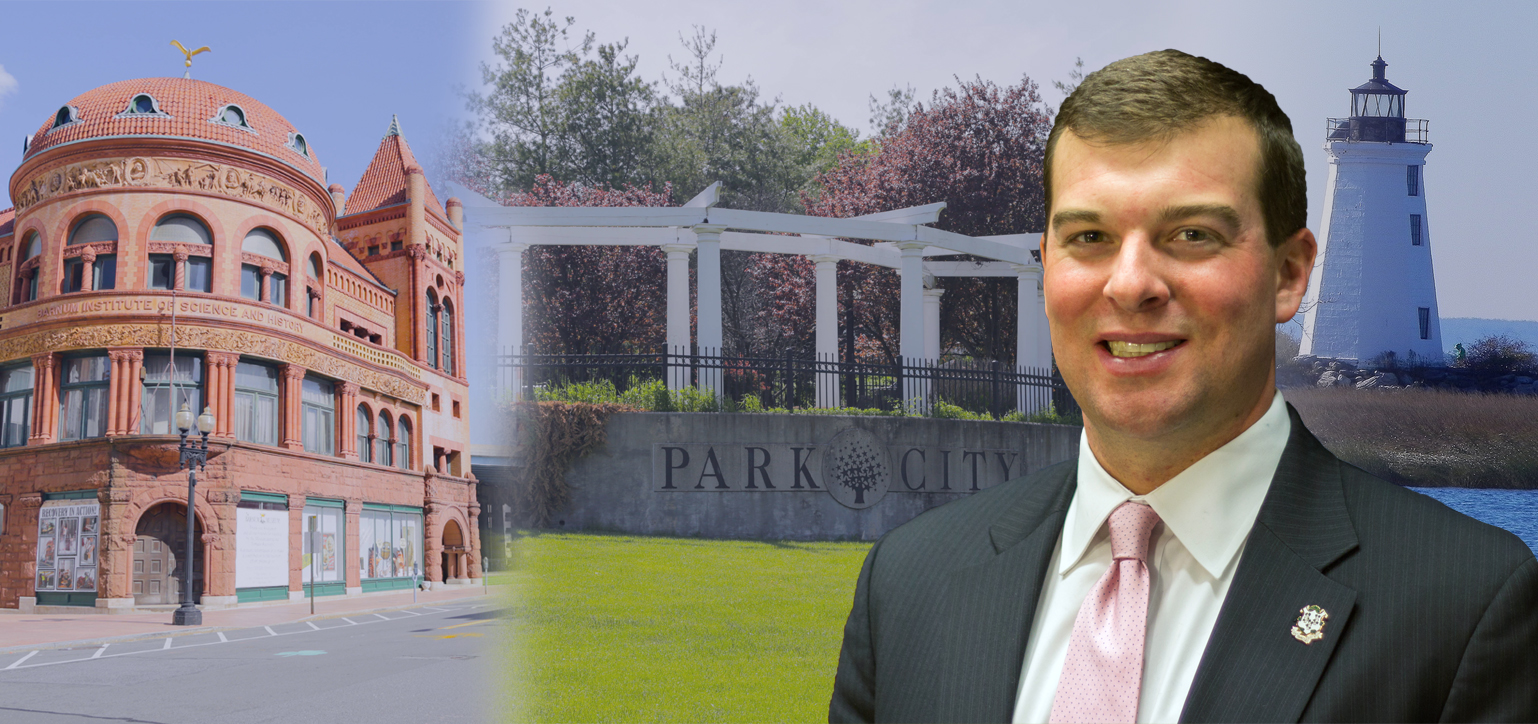End-of-year Capitol report
December 15, 2017The 2017 legislative session was predominated by the need to pass a difficult, but balanced state budget that would address Connecticut’s fiscal challenges. Connecticut is faced with a new financial reality that is caused by decades of underfunding our debt obligations, underinvesting in transportation and ignoring our cities as economic drivers. While these issues will not be solved in a single year, we made steady progress during the 2017 session to correct these mistakes.
The $41.3 billion two-year budget we adopted will help close a projected $3.5 billion deficit over the next biennium by committing to significant structural reforms. We implemented constitutional spending and bonding caps, initiated measures to control volatility in our revenue projections and required legislative votes on future state labor contracts.
We also made significant reforms to our state employee benefit agreements that will save taxpayers billions of dollars. These reforms will not only help Connecticut steady its financial footing, but it will help spur economic development and restore millions of dollars to municipalities, our schools and core state services. As vice chairman of the Judiciary Committee and a member of the Planning and Development Committee, we were also able to pass legislation that helps Bridgeport, improves our judicial system and protects some of our most vulnerable citizens. I am proud to share information about some of these new laws with you.
Reducing the City’s Debt
This year, we passed legislation allowing the city to restructure a portion of its unfunded pension liabilities, saving Bridgeport taxpayers an estimated $2.8 million per year – the rough equivalent of half a mill in taxes. This savings is achieved by borrowing at a lower interest rate, meaning the payoff schedule is not extended. Through this, taxpayers are estimated to save more than $70 million over the term of the payoff period.
Investing in our Youth
This year, funding was secured and protected to advance construction projects at Central High School and the North Avenue Boys and Girls Club. We also preserved our youth services and avoided the severe cuts to Bridgeport schools that were proposed by the Republicans and the Governor’s Executive Order by passing a $41.3 billion biennium budget.
Saving Taxpayer Dollars
The city is also expected to achieve significant savings from legislation I helped write which will allow municipalities, like Bridgeport, with self-insured health plans to recover the cost of certain medical payments made to employees or their dependents in the event of a non-work related personal injury or wrongful death caused by a third-party.
Protecting Seniors
Our senior citizens will benefit from new laws regulating financial professionals who work with seniors holding conservators accountable and strengthening the power of attorney act.
Encouraging Development
Legislation that paves the way for the construction of a thermal heating loop in downtown Bridgeport will not only reduce our carbon footprint, but will also directly add millions of dollars to our tax base and invite more residential and commercial development downtown through cheaper heating costs. This project stands to serve as a major catalyst for the renaissance of our downtown.
Maximizing Tourism
Bridgeport stands to benefit from legislation that will create a statewide entertainment council that will work to secure more concerts and events at Webster Bank Arena. Related legislation will also make it more attractive for boxing and mixed-martial arts events to come to Connecticut. These large-scale events will not only bring more visitors to Bridgeport and patrons to our shops and restaurants, but it will also help the city’s bottom line. Last year, we passed legislation that allows the city to collect a 5 percent service fee on all tickets sold at each venue.
Safety and Transparency in Law Enforcement
At a time of increased sensitivity surrounding relations between law enforcement and communities, I am proud to have worked to pass legislation that will allow Bridgeport to tap into a $9 million reserve of state funding to purchase body and dashboard cameras for police cruisers. This legislation is intended to improve relations between law enforcement and communities by increasing transparency.
Combating Human Trafficking
House Bill 7309 strengthens Connecticut’s human trafficking laws by increasing the penalty to a class A felony, and creates the felony crime of commercial sexual abuse of a minor for those who patronize or solicit minors who are trafficked for sex. It also requires the state to develop a tool for identifying victims of trafficking, provide training for professionals such as nurses, teachers and counselors, and establish a plan for diverting victims into community-based treatment programs.
Cracking Down on Hate Crimes
Responding to recent acts of bigotry, House Bill 5743 allows certain hate-crime offenders to be placed in community programs aimed at addressing their intolerance, and creates a statewide Hate Crimes Advisory Council. It also imposes minimum fines for certain hate crimes, including cross burning and desecration of property, and toughens the penalties for targeting and desecrating a house of worship.
Strengthening Domestic Violence Laws
Connecticut has long been a leader in addressing intimate partner violence with strong policies that strengthen victim safety and increase offender accountability. With House Bill 7299, we continue to update our laws by:
- Expanding existing laws on strangulation and stalking
- Acknowledging the use of social media as a modern means for stalking
- Increasing the penalty for committing a family violence crime while on probation
- Requiring a presentence investigation for anyone convicted of a family violence felony to take into account the circumstances of the offense and victim’s attitude
Smart Pretrial Justice Reform
Under our current system of pretrial detention, low-risk offenders are routinely held in jail simply because they cannot afford bail. Under House Bill 7044, a judge would be prohibited from setting bail for those charged with misdemeanors unless the judge determines that person poses an immediate threat to the public.





